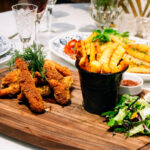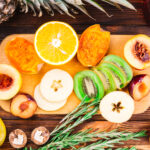
Overview
High blood pressure, also known as hypertension, is a common yet dangerous condition that increases your risk of heart disease, stroke, and other serious health issues. Managing hypertension requires a holistic approach, with a key factor being your diet. Certain foods can contribute to elevated blood pressure, while others help regulate it. Understanding which foods to avoid can make a significant difference in managing your blood pressure and improving your overall health.
In this article, we’ll cover the top foods you should avoid if you’re dealing with high blood pressure and offer healthier alternatives to support your heart health.
Understanding High Blood Pressure
Hypertension happens when the pressure of blood flowing through your arteries remains consistently too high, putting a strain on your blood vessels and heart. Over time, this increased pressure can lead to serious conditions like heart disease and kidney failure. One of the best ways to control high blood pressure is by paying attention to your diet, specifically by avoiding foods that can exacerbate the condition.
Salty and Processed Foods

Salt, or sodium, is a major contributor to high blood pressure. When you consume too much salt, your body holds on to extra water to wash it out of your system. This extra water puts pressure on your blood vessels, increasing your blood pressure
Related : Foods that Help Lower Blood Pressure
Foods High in Salt to Avoid:
- Processed Foods: Items like canned soups, frozen dinners, and snack foods such as chips are often packed with sodium.
- Cured and Deli Meats: Bacon, sausages, ham, and salami are cured with high levels of salt to preserve them and enhance their flavor.
- Fast Food: Restaurant and fast-food meals are notorious for containing excessive amounts of salt, especially items like fries, burgers, and pizza.
- Healthier Alternatives: Opt for fresh or frozen vegetables, homemade meals with less salt, and lean, unprocessed meats. Season your food with herbs, spices, and salt-free seasoning blends instead of relying on table salt
Related : how to control high blood pressure through diet
Sugary Foods and Beverages

Consuming too much sugar, particularly from sugary beverages and processed foods, can lead to weight gain, which raises your blood pressure. High sugar intake also contributes to insulin resistance, which is linked to heart disease.
Foods and Drinks High in Sugar to Avoid
- Sodas and Sugary Drinks: These are full of added sugars and provide little to no nutritional benefit.
- Sweets and Pastries: Cakes, doughnuts, cookies, and other baked goods often contain not only sugar but also unhealthy fats.
- Sugary Breakfast Cereals: Many cereals that are marketed as healthy can be packed with added sugar.
- Healthier Alternatives: Swap out sugary snacks for fresh fruit, and choose water or herbal teas over sugary drinks. For breakfast, go for oats or whole-grain cereals with no added sugar
Related : 24 Delicious High-Fiber Breakfasts to Enhance Your Digestion
Saturated and Trans Fats
Foods high in saturated and trans fats can raise cholesterol levels, leading to clogged arteries and higher blood pressure. These fats contribute to the buildup of plaque in your arteries, which makes it harder for blood to flow and raises your blood pressure.
Foods High in Unhealthy Fats to Avoid
- Fried Foods: French fries, fried chicken, and other deep-fried foods are typically high in trans fats.
- Baked Goods: Many cookies, pastries, and cakes are made with shortening or margarine, both of which contain trans fats.
- Full-fat Dairy Products: Items like butter, cream, and full-fat cheeses are high in saturated fats.
- Healthier Alternatives: Replace full-fat dairy with low-fat or non-fat options, and switch to healthier fats such as olive oil, avocado, and nuts. Baking or grilling your food is also a better alternative to frying
Excessive Caffeine

While moderate caffeine consumption may not have a long-term effect on blood pressure for everyone, some people are sensitive to caffeine. In such individuals, caffeine can cause a temporary but significant increase in blood pressure.
Caffeinated Drinks to Limit
Coffee: Drinking too much coffee can raise blood pressure, especially in those who are sensitive to caffeine.
- Energy Drinks: These often contain high levels of caffeine along with sugar, both of which can contribute to high blood pressure.
- Sodas and Certain Teas: Some sodas and teas contain caffeine and should be consumed in moderation.
- Healthier Alternatives: If you’re sensitive to caffeine, consider switching to decaffeinated coffee or herbal teas. Keep your caffeine intake moderate by avoiding energy drinks and limiting your daily cups of coffee.
Alcohol
Drinking alcohol in excess can raise blood pressure and damage the heart. Over time, heavy drinking can cause chronic high blood pressure. Even moderate alcohol intake can lead to spikes in blood pressure if consumed regularly
Alcoholic Drinks to Limit
- Beer, Wine, and Spirits: While small amounts of alcohol may not pose a risk, excessive drinking can raise blood pressure significantly.
- Mixed Drinks: Cocktails, in particular, can contain large amounts of sugar along with alcohol, contributing to both high blood pressure and weight gain.
- Healthier Alternatives: If you drink alcohol, do so in moderation. This means limiting your intake to one drink per day for women and two drinks per day for men.
Heart-Healthy Tips for Managing Blood Pressure
In addition to avoiding the foods listed above, adopting heart-healthy eating habits can further help control high blood pressure. Here are some tips:
- Eat More Potassium-Rich Foods: Potassium helps balance the effects of sodium in the body. Bananas, spinach, sweet potatoes, and avocados are great sources of potassium.
- Increase Your Fiber Intake: Whole grains like brown rice, oats, and whole-wheat products help reduce cholesterol levels and support heart health.
- Choose Lean Proteins: Opt for lean meats, poultry, fish, and plant-based proteins like beans and lentils instead of fatty meats
The Takeaway
Managing high blood pressure through diet is one of the most effective ways to maintain long-term heart health. By avoiding foods high in sodium, sugar, unhealthy fats, caffeine, and alcohol, you can significantly lower your risk of developing hypertension-related complications. Making these dietary adjustments, alongside regular exercise and medication if prescribed, will help keep your blood pressure in check and improve your overall well-being
Frequently Asked Questions
- Why is sodium bad for people with high blood pressure?
Sodium causes your body to retain extra water, which increases the volume of blood in your bloodstream. This extra blood volume puts pressure on your blood vessels, raising your blood pressure. Over time, high sodium intake can lead to chronic hypertension and increase your risk of heart disease and stroke.
- Can cutting out caffeine lower blood pressure?
For some people, especially those sensitive to caffeine, reducing caffeine intake can help lower blood pressure. Caffeine may cause a short-term spike in blood pressure, and frequent consumption can contribute to long-term hypertension in some individuals. It’s best to monitor your intake and limit caffeinated drinks if you’re concerned about your blood pressure.
- What are some heart-healthy alternatives to high-sugar snacks?
Healthy alternatives to sugary snacks include fresh fruit, unsweetened yogurt, and snacks made from whole grains like oats. These options provide essential nutrients without the added sugars that can lead to weight gain and high blood pressure.
- How much alcohol is safe to consume if I have high blood pressure?
If you have high blood pressure, it’s important to limit alcohol intake. Moderate drinking is defined as one drink per day for women and two drinks per day for men. Drinking more than this can raise blood pressure and increase your risk of heart disease. Always consult with your doctor for personalized advice.












